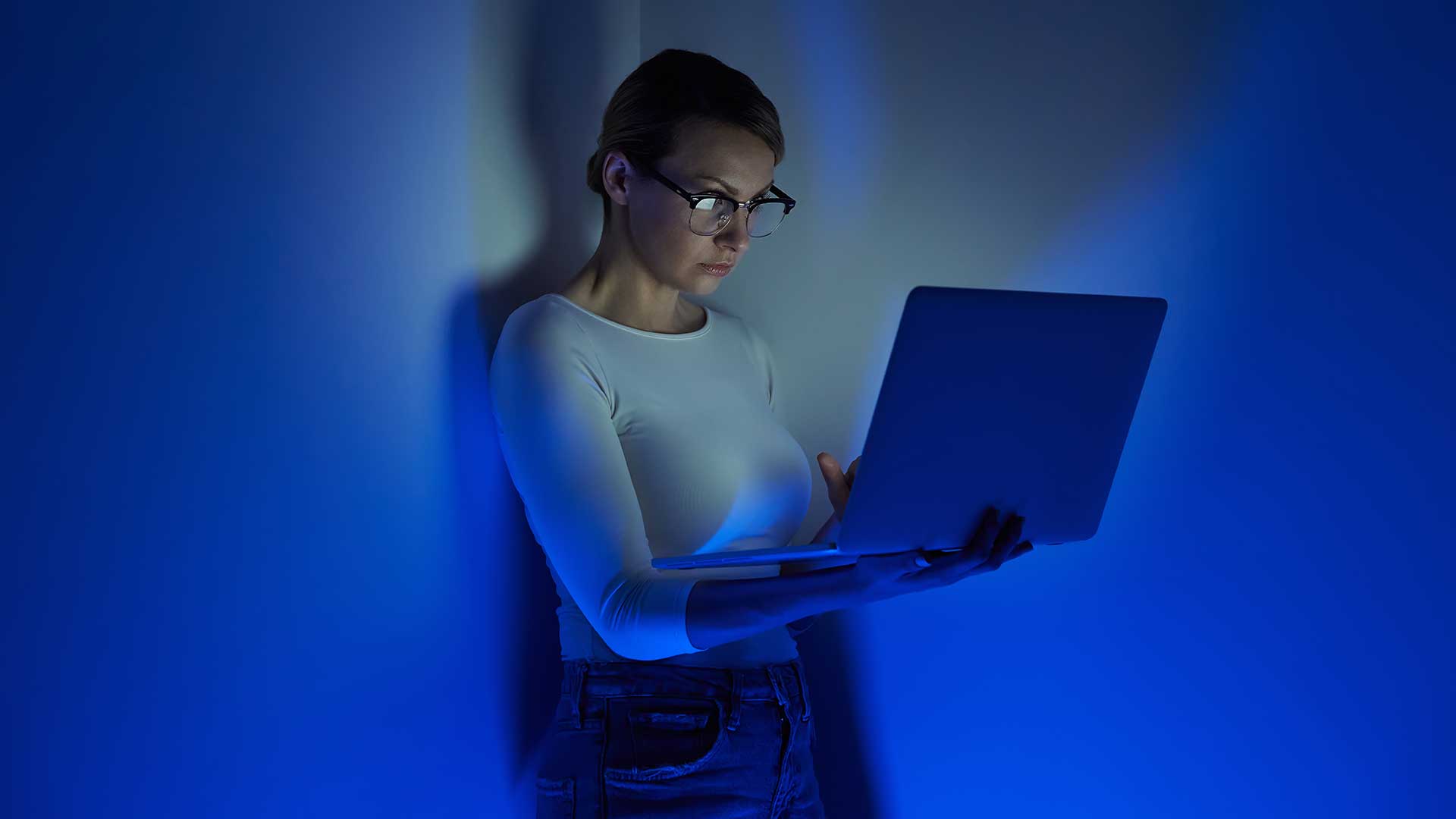In our modern world, where electronic devices illuminate our lives day and night, understanding the impact of blue light has become increasingly important. From smartphones to fluorescent lights, blue light surrounds us, influencing our bodies in ways we may not even realize. In this article, we’ll explore the effects of blue light on both our eyes and sleep, shedding light on its role in our daily rhythms and overall well-being.
What Is Blue Light? Blue light, a high-energy wavelength found in LED and fluorescent lights, as well as electronic devices, plays a multifaceted role in our lives. Beyond simply illuminating our surroundings, it also affects our alertness, hormone production, and sleep cycles. Understanding its influence is key to optimizing our daily routines and ensuring a good night’s sleep.
Blue Light and Circadian Rhythms: Our bodies operate on a 24-hour cycle known as circadian rhythms, regulating essential functions such as sleep and wakefulness. Blue light serves as a crucial cue for aligning these rhythms with the natural day-night cycle. During the day, exposure to blue light enhances performance and attention, signaling to our bodies that it’s time to be alert and active. This prepares us for restful sleep when evening falls.
However, the story doesn’t end there. Exposure to blue light in the evening can disrupt our sleep patterns by suppressing the production of melatonin, the hormone responsible for inducing drowsiness. This interference can lead to difficulty falling asleep and poorer overall sleep quality, affecting our health and well-being in the long run.
Effects on Sleep:
When it comes to sleep, blue light can have both positive and negative effects, depending on timing and intensity. Strategically timed exposure to blue light, such as in the morning or early afternoon, can help treat sleep disorders by realigning circadian rhythms and promoting wakefulness during the day.
This targeted approach can be particularly beneficial for individuals struggling with conditions like insomnia or jet lag. On the flip side, exposure to blue light in the evening can wreak havoc on our sleep hygiene. The artificial glow of electronic devices tricks our brains into thinking it’s still daytime, delaying the onset of sleep and disrupting the natural transition into restorative rest. As a result, many of us find ourselves tossing and turning, unable to disconnect from the digital world and embrace the tranquility of sleep.
Mitigating Blue Light Effects: Fortunately, there are steps we can take to mitigate the negative effects of blue light and foster healthier sleep habits:
-
Limit Exposure: Decrease exposure to light, especially blue light, in the evening hours. Set boundaries for screen time and prioritize relaxation activities that promote winding down before bedtime.
-
Screen Filters: Invest in screen filters or blue light-blocking glasses to reduce exposure from electronic devices. These filters can help filter out harmful blue light wavelengths, allowing for more restful sleep without sacrificing digital connectivity.
-
Night Mode: Take advantage of the night mode feature available on many devices, which automatically reduces blue light emission during the evening hours. This simple adjustment can make a significant difference in promoting better sleep hygiene.
-
Dim Lighting: Opt for dimmer, warmer lighting in your bedroom to create a soothing environment conducive to sleep. Avoid harsh overhead lights and instead opt for softer, indirect lighting sources that signal to your body that it’s time to unwind.
Conclusion: In conclusion, blue light plays a significant role in shaping our daily rhythms and influencing our sleep patterns. While exposure to blue light during the day can enhance alertness and performance, nighttime exposure can disrupt our sleep cycles and hinder our ability to restorative rest. By taking proactive steps to limit exposure and mitigate its effects, we can promote healthier sleep habits and overall well-being in an increasingly digital world. Remember, striking a balance between embracing technology and honoring our body’s need for rest is essential for optimal health and vitality.




